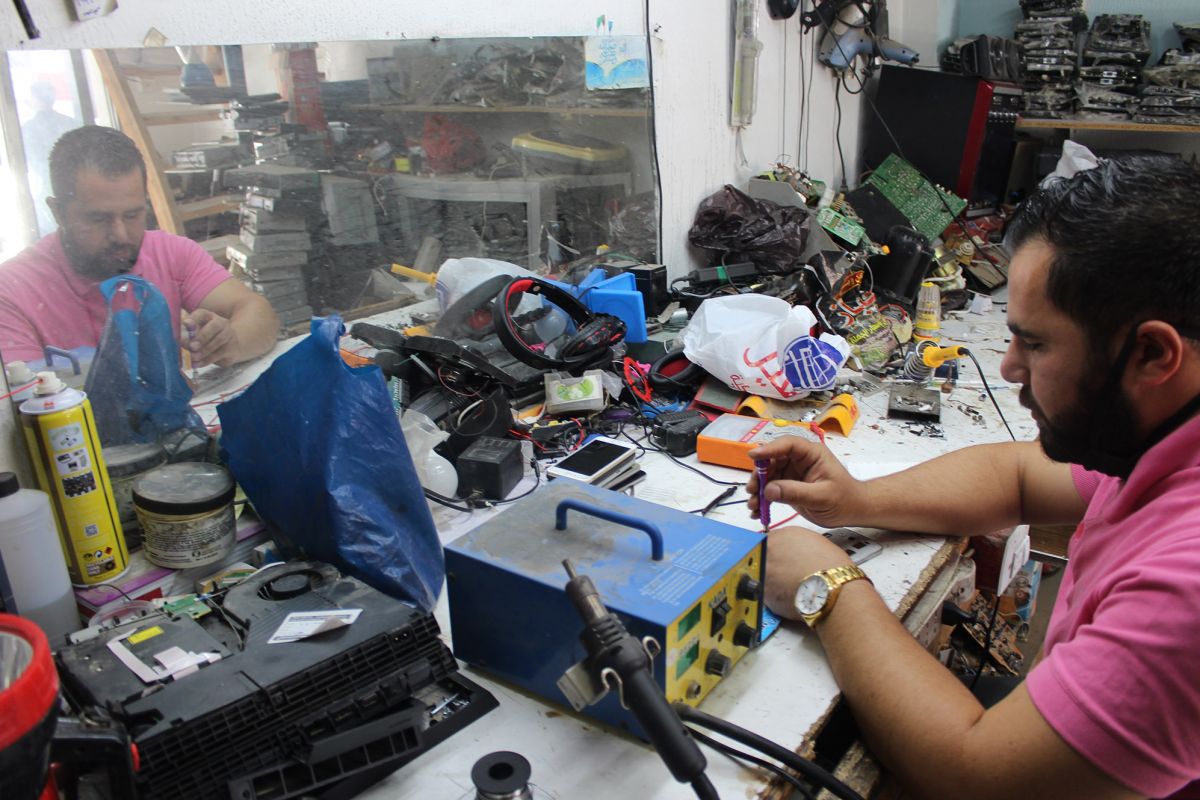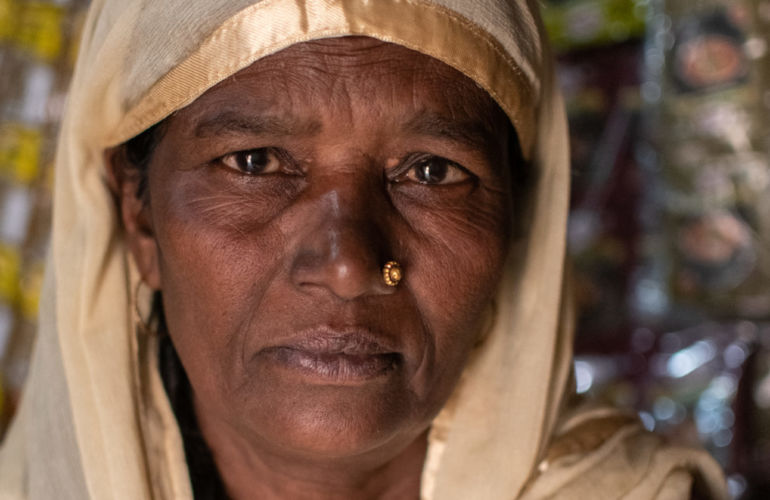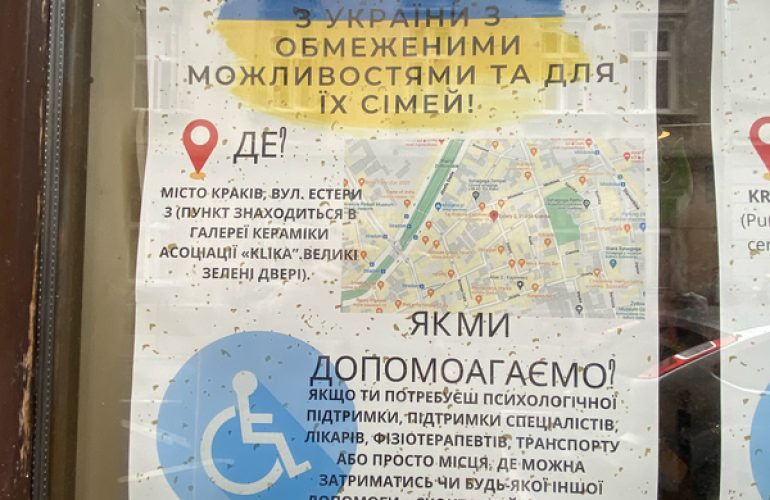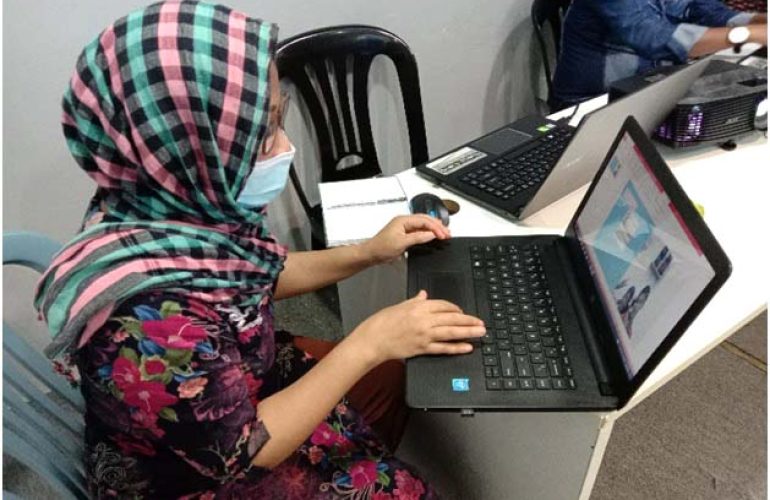Sanad: A Story of Ambition, Determination, and Realization
In 2020, ICMC Jordan’s livelihoods program helped 200 young men and women increase their financial resilience by gaining marketable skills. This is the story of Sanad, one of the programs’ graduates, who survived war and injury. Although incapacitated and thanks to his determination, he is now providing for his family.

“Every person, regardless of their vulnerability, whether they are a refugee or not, should look up to Sanad and learn from his determination and his commitment to progress,” says Jordanian electronics shop owner Sameer of his employee of three years.
Sanad, now 29, fled violence in Syria in 2012. He lives in Mafraq, Jordan with his wife and two children, his parents, and his siblings. In 2020, he graduated from the International Catholic Migration Commission’s (ICMC) livelihoods program for mobile phone maintenance.
Sanad and his family are among the more than 660,000 registered Syrian refugees who have fled to Jordan over the past decade. Syrian refugees in Jordan are often extremely financially vulnerable and almost twice as likely as nationals to be unemployed. Although the Jordanian government allows them to work under certain conditions, their skills often don’t match the careers they are permitted to practice. Furthermore, employers are often wary of hiring them.
Before fleeing, Sanad and his younger siblings lived in their parents’ home in the Syrian Governorate of Daraa. His father worked abroad, first as a day laborer in Lebanon and then as a restaurant attendant in Saudi Arabia. The family lived off the remittances he sent home.
Because of the family’s strained finances, Sanad left school young to work as a day laborer in Syria. “I had no goal of pursuing higher education, and I wanted to contribute to my family’s finances. Being the eldest, I have a responsibility towards my family and siblings,” Sanad explains.
In Jordan, the family quickly exhausted their savings. Sanad and his three brothers had to work to keep them financially afloat. “We worked different jobs, but once, we all worked at the same grocery store. We were quite happy. But our salaries barely covered our basic needs and we did not have enough for rent. So I moved to [Jordan’s capital] Amman to work on construction sites. The work was harder but the pay was much better.”
While working in construction, Sanad fell from the third floor of a building. The accident incapacitated him for two years, increasing his family’s financial strain. Throughout his hospitalization, Sanad needed weekly treatments costing 150 Jordanian Dinars [approximately USD 210]. The family could not afford this amount and relied on the assistance of acquaintances.
Because of his injury, Sanad could no longer work in construction and moved back in with his family in Mafraq. There he met a neighbor, Sameer, while doing recovery exercises outside his home.
“Seeing him walk up and down the street every day under the falling rain on his crutches made me curious. After learning his story, I took Sanad on as my apprentice in my electronics shop. I trained him in the basics of the trade. Sanad has been working with me since 2017,” said Sameer.
From the moment Sameer took him under his wing, Sanad became intent on learning new skills that could benefit his employer and himself. “I couldn’t limit myself to only fixing home appliances while the opportunity in the repair of finer and intricate electronics such as mobile phones is growing,” he says.
To fulfill his ambition to specialize, Sanad started looking for training courses. Unfortunately, all the opportunities he could find were outside the Governorate of Mafraq and required frequent travel, the cost of which would weigh on his family. So he asked his friends to keep a look out for local training opportunities.
Finally, Sanad learned about ICMC and its just-launched mobile phones maintenance course. Unfortunately, when he first tried to register, the classes had already started, but he did not give up. Sanad’s persistence and determination to enroll impressed the ICMC staff in charge of the course, who put him on the waiting list. When another student dropped out, Sanad was admitted to the program.
Despite his late admission, Sanad successfully completed the training as one of the first cohort of ICMC’s mobile phones maintenance training program launched in the Governorate of Mafraq in 2020.
Through its livelihoods program, ICMC Jordan gives vulnerable youth a chance to build their lives and access a sustainable source of income, regardless of their nationality, religion, and legal status. In 2020 alone, the program helped 200 students, including 140 vulnerable Syrian refugees, to increase their financial independence by acquiring skills useful in the Jordanian job market.



